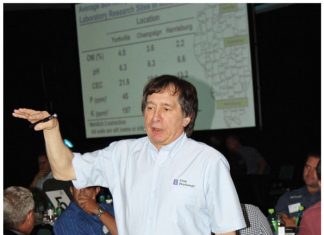September 2018

Land has become the number one political issue in South Africa. Having been on panels and radio shows over the last few months about this issue, it never ceases to amaze me how much misunderstanding and pure scaremongering exist around it.
It is perhaps understandable since most of the column inches and airtime in the media are devoted to quotes from the EFF or AfriForum – two extreme poles on opposite sides of the land spectrum. Both sides produce sensational and populist sound bytes, but in reality, neither represents the majority of people in this country and therefore will not decide how this issue plays out in the foreseeable future.
Ultimately it will be the majority party that will decide what will happen around the expropriation and redistribution of land.
It is therefore important to carefully note what the ANC has been saying, both publicly and in their internal documents, about this issue. A careful analysis shows a measured, or in the words of Minister Lindiwe Sisulu, ‘a sensible and sensitive approach to the issue’. There is not even the slightest whiff of land grabs, large scale removal of farmers off their land or the diminishing of property rights in general. Yet, despite repeated reassurances from the president and other senior ANC members, large scale fear bordering on panic continues to grow amongst ordinary citizens.
I’m not alone in being extremely concerned about the impact of this discussion or debate on the social cohesion of our nation. So, let me try and bust some of the most common myths/misconceptions that exist in the public narrative in an attempt to let truth rather than scary fiction inform peoples’ thinking.
Myth 1: The ANC is blaming it all on apartheid
Even though it is true that many of the vast inequalities of ownership of property and land that we have today, date back to apartheid and colonial times, the ANC in their documents acknowledge that not enough has been done to rectify the situation since 1994. They take responsibility for that. However, they also know that the status quo can’t continue. Lindiwe Sisulu once more: ‘As the ANC we realise that we are running out of our own time.’
Myth 2: The ANC wants to amend the Constitution
Contrary to what AfriForum and some ignorant journalists would like us to believe, the ANC has not said that it will definitely amend the Constitution. In their documents and statements, it is clear that they actually believe that Section 25 of the Constitution has always allowed expropriation without compensation and that an amendment therefore might not be necessary.
The motion that was passed in Parliament also did not say that they will amend the Constitution, but rather that the constitutional review committee in Parliament must investigate whether an amendment is necessary.
Myth 3: It’s all about taking white farmers’ land
Again, largely due to the populist narrative of some, we are made to believe that the expropriation issue is focussed (as in Zimbabwe) on farm land. Although agricultural land is of course important, the ANC documents make it clear that their focus is far more on urban and peri-urban land. Given the high rate of urbanisation, the ability to give people title deeds and thus ownership of land in the urban areas is actually the main, albeit not the exclusive, focus. Hence the announcements during May about transferring land and title deeds to people in urban areas like Gauteng.
Myth 4: The ANC wants all land to be in state hands
There is a very important difference between the EFF and ANC on this matter. The EFF has indicated that they would like all land to be in the hands of the state. The ANC has said that they want to handle the expropriation on a case-by-case basis, by applying certain agreed and legislated criteria (which will of course be tested in the courts). So, it will not just be a large scale, random dispossession of land or property.
Yes, it is clear that the governing party wants and needs to speed up land reform and that expropriation without compensation is one of a number of mechanisms they will use. However, everything points to a determination to do so through carefully considered legislative mechanisms, such as amending the Expropriation Bill to clarify under what circumstances it will be ‘fair and equitable’ (as required by the Constitution) to expropriate without compensation.
Whatever is done must stand up to the scrutiny of the courts. As a country we will not be at the mercy of populist politicians.
Ultimately, it is also important to remember that the leaders of the governing party know that they have to strike a careful balance if they want to stay in power. They have to do something fast to address the growing impatience around land, but they can’t do anything that will collapse the economy. Hence the wording of the ANC resolution at Nasrec that expropriation of land may not undermine future investment in the economy, damage other sectors of the economy or negatively impact on agricultural production or food security.
For the peaceful future of the country we have to listen to what is actually being said by those who are making the decisions and reject those who are trying to scare us in order to grow their own power bases.

Publication: September 2018
Section: Relevant

















